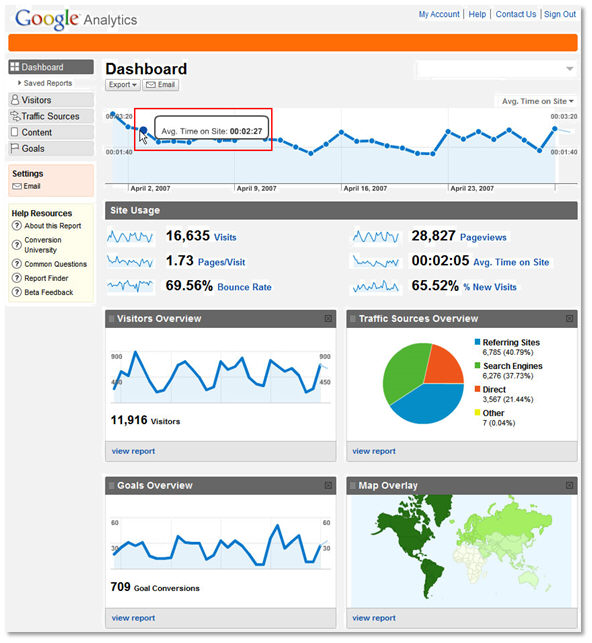Google Analytics
Google Analytics uses a first-party cookie and JavaScript code to collect information about visitors and to track the advertising journey data. Google Analytics anonymously tracks how visitors interact with a website, including where they came from, what they did on a site, and whether they completed any of the site's conversion goals.
It also keeps track of the e-commerce data, and combines this with journey and conversion information to provide insight into the performance of your advertising journeys.
All of this information is presented in an easy-to-read, yet thorough manner, through intuitive, visual reports. Google Analytics won't affect the performance or the appearance of the website and there are no extra files to host on the website.
With information from Google Analytics, it’s possible to drive traffic more efficiently throughout the site.
Source:Google Official Website
Activate the tracking
1. Go to Marigold Engage/Configuration/General tab.
2. Click the + button in the Trackers field at the bottom of the page and start filling out the properties;
3. Set a Name for the tracker.
4. Define one or more Domains on which the tracker should be activated. Every URL linked to a sensor that points to the indicated domain is completed with a set of parameters used by Google Analytics.
5. When selecting Google Analytics, a button 'Edit tags' is displayed, indicating that parameters need to be defined. Five specific parameters are used by Google Analytics to track the user behavior. These parameters are added to the URL of each clicked link pointing to the tracked domain(s).
The following parameters can be passed on:
NOTE: Default values are already defined but can be updated if needed.
Parameters description:
- Source(utm_source) — Allows defining the source of the communication in order to identify multiple sources in the Google Analytics reporting.
- Medium(utm_medium) — Defines the channel from which the users come from (e.g., email or web page).
- Campaign(utm_campaign) — This corresponds to the Campaign Analytics tag in the properties of the journey and used to identify the journey.
- Content(utm_content) — This contains the Message Analytics tag defined in the properties of the journey.
- Term(utm_term) — Contains the Links Analytics tag (defined in the properties of the Link).
Consulting results
To be able to view the results, Google Analytics must have been previously set up and running.
Once Google tracking has been configured, data about site consultations can be arranged in dashboard to analyze results:



